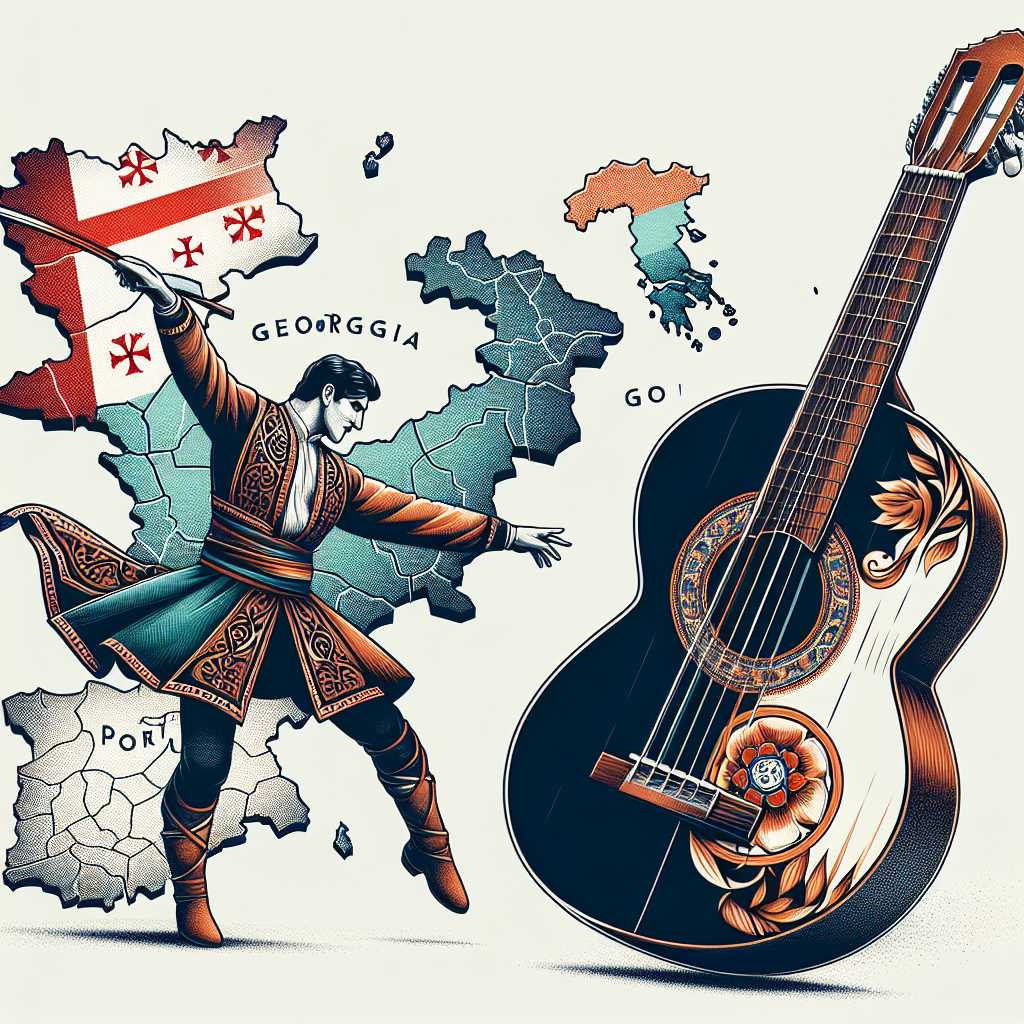Georgia vs Portugal: A Comparative Overview of Two Diverse European Nations
The countries of Georgia and Portugal, while both located on the European continent, present a unique study in contrast due to their differing geographic placements, cultures, histories, and current socio-economic situations. This article aims to compare and contrast these two countries with a politically neutral perspective, providing insights into each nation through their geography, history, cultural diversity, economic performance, and current challenges. Understanding these aspects highlights the rich tapestry of European diversity and illustrates the unique narrative that each country offers.
Geography and Climate: Unique Landscapes of Georgia and Portugal
Georgia is situated at the crossroads of Eastern Europe and Western Asia, characterized by a varied landscape that includes coastal areas along the Black Sea, lush lowland plains, high mountains such as the Caucasus, and a temperate climate that can range from humid subtropical to cold alpine. Conversely, Portugal is located on the Iberian Peninsula, bordered by Spain and the Atlantic Ocean. It boasts a Mediterranean climate with warm dry summers and mild wet winters; this setting has heavily influenced its fishing industry and marine culture.
Significant Milestones in Georgian and Portuguese History
Georgia’s history dates back to ancient times with the establishment of the first Georgian kingdom around 4th century BC. Over the centuries, Georgia has faced periods of golden age cultural development alongside invasions by various empires such as the Ottomans and Russians. The 20th century saw Georgia absorbed into the Soviet Union until it regained independence in 1991.
Meanwhile, Portugal has a rich maritime history dominated by its Age of Discovery during the 15th and 16th centuries. This period was marked by exploration and colonization under renowned figures like Prince Henry the Navigator and Vasco da Gama. Following this peak, Portugal experienced seismic shifts in political landscapes with events like the installation of a republic in 1910, a long dictatorship period under Salazar, and its transition to democracy after the Carnation Revolution in 1974.
Cultural Richness: Traditions and Heritage
The Georgian culture consists of unique traditions including polyphonic singing recognized by UNESCO, traditional dances, religious festivals linked to the Orthodox Christianity, and its own alphabet. There is also a notable significance placed on hospitality. Georgian cuisine is gaining global recognition for dishes such as khachapuri (cheese-filled bread) and khinkali (dumplings).
Portugal’s culture is also diversified but is especially known for Fado music—a mournful genre linked to seafaring history—vivid folklore festivals, Catholic celebrations due to predominant Roman Catholicism influence, along with iconic arts like Azulejos tiles. Portuguese cuisine offers a different palate mainly consisting of seafood dishes like bacalhau (codfish), seasoned with spices acquired during exploration days.
Economic Profiles: Georgia’s Growth vs Portugal’s Stability
The Georgian economy has experienced significant growth since gaining independence from the Soviet Union due to economic reforms focused on facilitating business operations. The primary sectors include agriculture, mining (manganese, copper), and hydroelectric power. Besides that, tourism has emerged as an increasingly pivotal industry due to Georgia’s historical sites and natural beauty.
Portugal’s economy is more mature and advanced but faces its own set of challenges such as high national debt levels. Key sectors include renewable energy (with significant solar power potential), automotive parts manufacturing, textile industry developments, wine production (Porto wine), and also tourism which remains a strong contributor to its GDP.
Current Political Dynamics and Challenges
Politically, Georgia has undergone substantial democratic reforms near the turnways of its administration form but it confronts issues regarding territorial integrity due to disputes engaged over South Ossetia and Abkhazia regions. Transitioning into a more stable political structure has been important for EU aspirations.
By distinction in governance dynamics, Portugal is recognized for its staple as a Eurozone member state with a democratic parliamentary regime. However much evolved social policies seen in todayaland now face trials such as maintaining fiscal discipline while managing public discord over austerity measures imposed following the 2008 financial crisis global order sequemential narrative stances.
*Notes*
